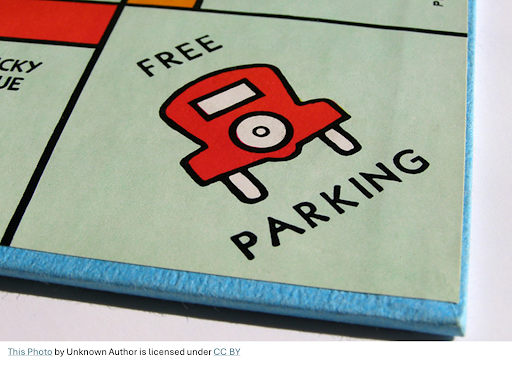One Mississippi, two Mississippi, three Mississippi, four Mississippi, five Mississippi: 60,000 plastic bags were just wasted in the United States. With 500 billion being used per year worldwide, plastic bag consumption has become a major global issue. Individuals and communities need to recognize their responsibilities to the environment, human health and future generations by reducing personal consumption and implementing plastic bag fees or bans.
Plastic bags are generally carried home, shoved into a cabinet, and eventually thrown “away.” The life of your plastic bag does not stop there. Whether you know it or not, plastic bags are made from fossil fuels.
We are creating a “single-use disposable” item that will last forever. Plastic does not just slowly disappear, plastic cannot biodegrade—it only photo-degrades. This means that the sun causes plastic to break up into smaller pieces that remain in the environment indefinitely. When animals encounter and accidentally consume these indigestible pieces of plastic, they cause unfortunate and often deadly consequences.
This generally happens in the ocean after bags have found their way down a stream, river or storm drain. There are immense swirling parts of the ocean, called gyres, that trap plastic in an endless spiral.
The largest one of these gyres is nicknamed the Great Pacific Garbage Patch and is estimated to be anywhere from twice the size of Texas to the size of the entire continental U.S. The majority of this plastic is the miniscule photo-degraded pieces, easily mistaken for food by marine life. Plastic bags are also often mistaken for jellyfish, a common part of most marine creatures’ diets.
The consequences for wildlife are accompanied by environmental degradation, negative health impacts and even human-rights violations. The environment is suffering as we allow beaches to accumulate 12 inches of built-up plastic debris. Our bodies suffer from common chemical components of plastic, such as BPAs and phthalates, that are known endocrine disruptors. Laborers in Asian plastic processing plants are suffering from receiving bare minimum pay while working in dangerous and toxic conditions. So what’s being done about it?
Bans and fees are being established worldwide. In 2008 even China, the world’s largest pollution producer, banned ultra-thin plastic bags and saved 40 billion bags in the first year. Ireland imposed a fee and, in the first year, reduced consumption by an incredible 90 percent. Nations and cities across Africa, Australia, much of Europe, and the U.S. have now followed suit.
In June of 2009, Washington, D.C. became the first city in the U.S. to place a fee on plastic bags. There has since been an estimated 80 percent reduction in disposable bag usage. Here in Colorado, there are initiatives being taken; Boulder City Council is expected to impose a 10-cent fee on all plastic bags this summer. According to the Denver Post on April 28 of this year, the Denver City Council has begun considering an ordinance to institute a 5-cent fee.
We are clearly moving in a positive direction, but more significant measures should be taken. Five or 10-cent fees are a start, but Ireland and Germany charge the near equivalent of a quarter and have had immense success. Studies have informed us that the more minor fees decrease in efficiency with time as consumers adjust to the measure.
The issue of single-use disposable bags is one of both personal and community responsibility. The community should recognize that consumers need to be encouraged to decrease their intake of plastic and that cities have a duty to the environment and generations to come. This is also an individual responsibility.
The average American consumes 500 disposable bags a year; here at DU alone, with a student population of about 12,000, we could save 6 million bags in just one year. Take on your own challenge and refuse to use plastic bags and urge Denver to take on the challenge of putting in a disposable-bag fee. We must take a stand against plastic bags, for the sake of the animals, the environment and ourselves.











